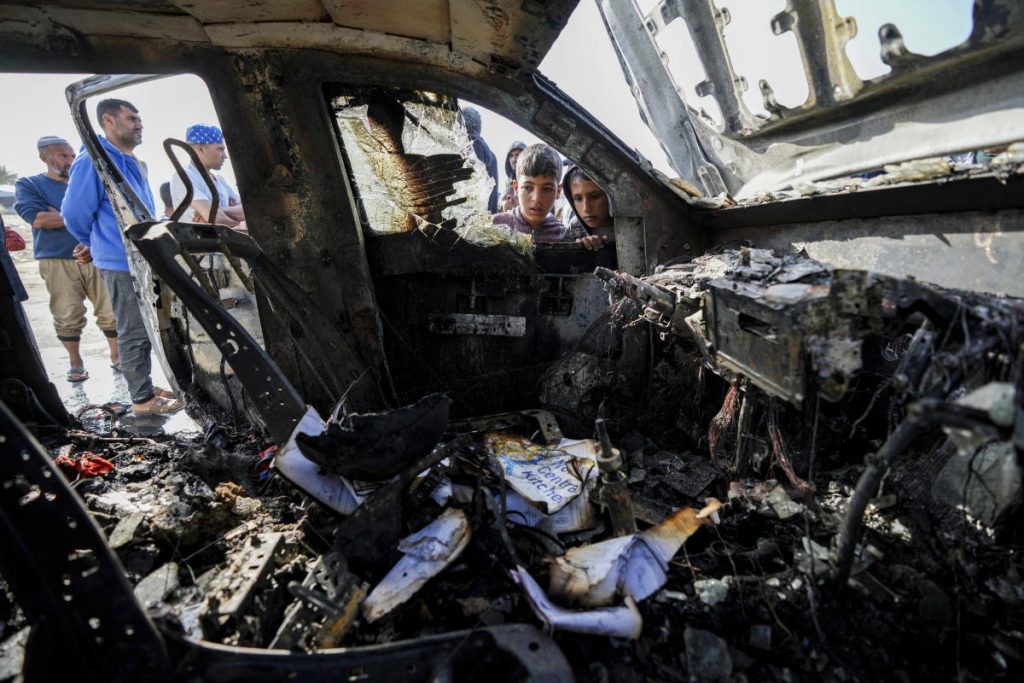The Israeli military announced on Friday that two officers had been dismissed and three others reprimanded for their roles in drone strikes in Gaza that resulted in the deaths of seven aid workers. This admission marked a significant embarrassment for Israel, which has been criticized by key allies, including the United States, for not doing enough to protect civilians in Gaza. The investigation results are likely to renew doubts about the decision-making process in the Israeli military, as accusations of reckless attacks on civilians have been made throughout the conflict.
The findings of the investigation were shared with reporters by military spokesman Rear Adm. Daniel Hagari, who described the incident as a tragedy and a serious event for which Israel takes responsibility. The quick pace of the probe and the subsequent punishment of senior officers were seen as highly unusual, as previous cases of suspected wrongdoing by soldiers and officers have often not resulted in charges. Despite the actions taken by the military, the international outcry over the deaths of the aid workers was not necessarily assuaged and doubts remained about the safety of resuming operations in Gaza.
According to the military’s rules, targets must be visually identified as threats for multiple reasons before they can be attacked. However, in this case, a colonel authorized the drone strikes based on the observation of a major, who mistakenly believed that someone in the convoy was armed. This observation was later found to be incorrect, leading to the dismissals of the colonel and major, as well as the reprimanding of three other officers. The results of the investigation have been passed on to the military’s advocate general for further potential punishment or prosecution.
Those killed in the drone strikes were aid workers from World Central Kitchen, including three British citizens, a Polish citizen, an Australian, a Canadian American dual citizen, and a Palestinian. The investigation found faults in two main areas – officers not reading messages that would have identified the workers’ vehicles, and officers acting without sufficient information in identifying the strike target. The military claimed that the decision to strike was made after a passenger in a car was identified as a gunman, leading to actions that resulted in several deaths.
The World Central Kitchen workers were distributing food in Gaza through a new maritime corridor and had coordinated their movements with the military. The vehicles were marked with the organization’s logo, making it clear that they were humanitarian aid workers. More than 220 humanitarian workers have been killed in the conflict, according to the U.N., and aid organizations have described the killing of aid workers in Gaza as a systemic issue. The investigation into the drone strikes was led by a retired general and found significant failures in decision-making and identification processes within the Israeli military.


